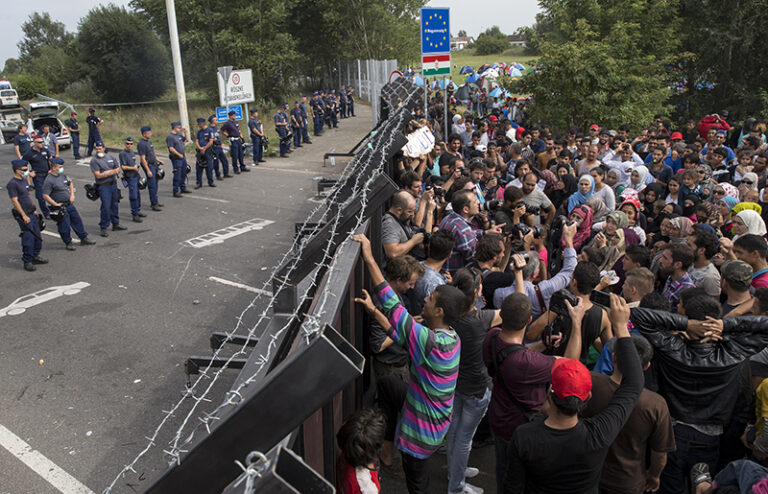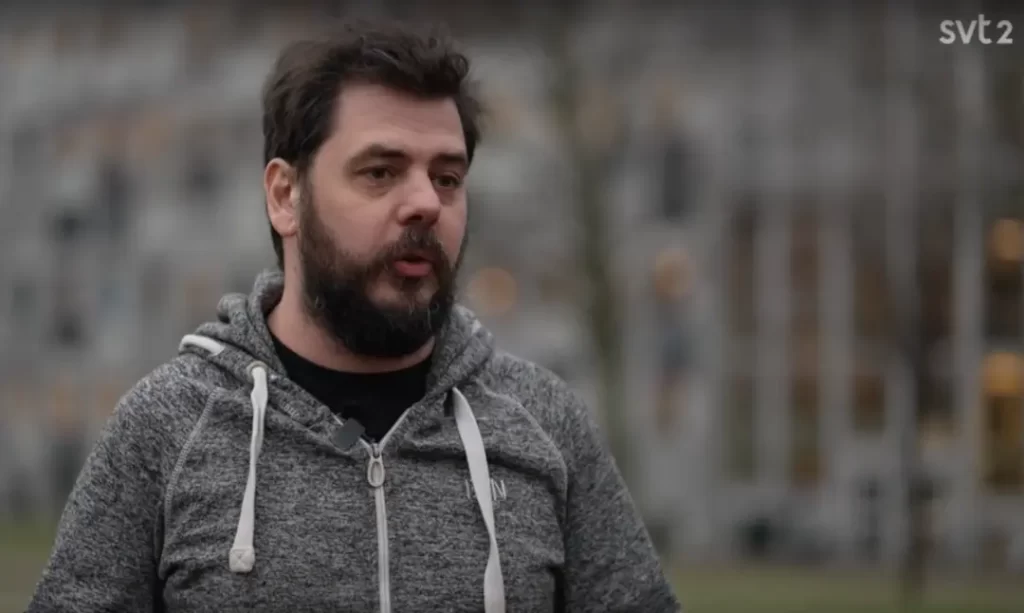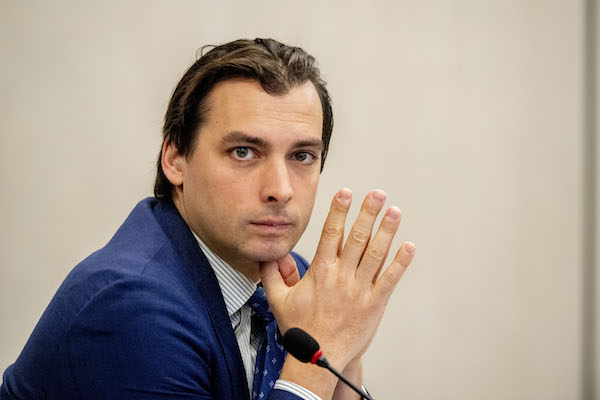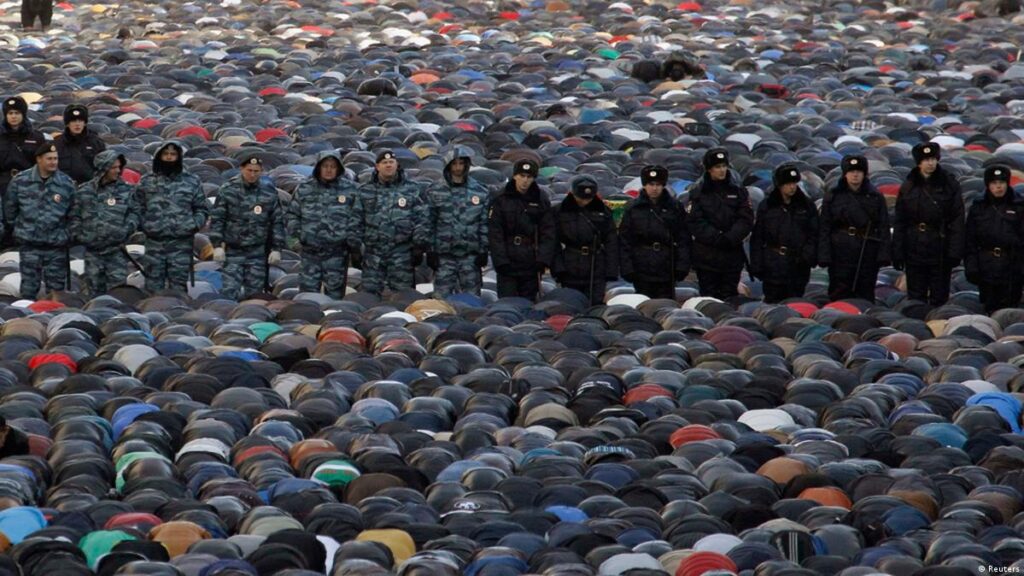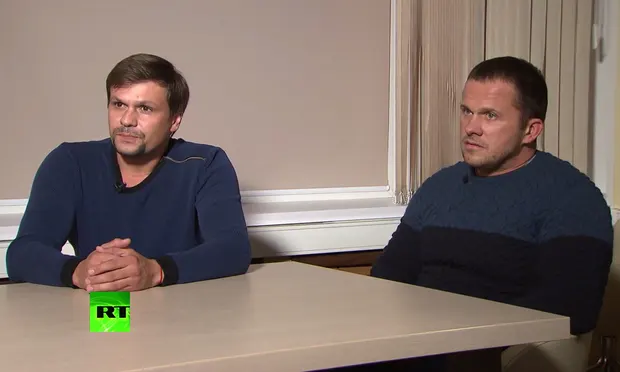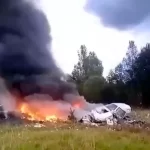It is getting overwhelmingly likely that, in the context of a sharp confrontation with the West, the Kremlin intends to place a bet on fueling religious conflict in Europe. Such a tricky activity may open a ‘second front’ that Russia wants so passionately to make Europe focus on its own problems, and incline it to create new spheres of influence, limit rights and freedoms to the maximum level. This strategy will make it possible to equalize the situation in Europe with the events in Russia, as well as force the population of these countries to reconsider the attitude towards authoritarian rule as a state model capable of guaranteeing peace and order.
Due to the following operations Moscow has the necessary tools to provoke a religious conflict in Europe:
• Controlled mass migration from Syria and Libya to European countries in the period 2014-2017.
• Moscow-sponsored and backed European far-right political forces following Islamophobic policies.
• Effective provocative actions aimed at curbing NATO expansion in Northern Europe.
The Quran-desecrating acts in Sweden are directly linked to the Russian intelligence. The RLI analyzed the action of far-right Danish politician Rasmus Paludan, who burned the Quran in Sweden in order to freeze Turkey which did not greenlight NATO membership of Sweden.
In addition, one of the latest actions in The Hague ties with Russia. Its initiator was Edwin Wagensveld, leader of the Dutch branch of Russia-linked anti-Islamic far-right group Pegida. According to his statement, as ‘Islam poses risks to the Dutch society’, he organized an action to tear up the Quran.
Such actions are framed within the Kremlin’s hybrid operations concept in Europe, when the rights and freedoms are trickily used to carry out provocations and propaganda (information operations). The misuse of freedom of expression and assembly, stipulated in the constitutions of the countries, is the popular-used ground for such protests.
Swedish Civil Defense Minister Carl-Oscar Bolin said the country was the target of Russia’s misinformation campaign. In its turn, the Swedish state security service SÄPO also shared the RLI conclusions saying that the Quran provocations were organized by the Kremlin.
The increase in the frequency of the Quran-desecrating incidents coincided with the sanction policy against Moscow, its losses in the war with Ukraine, its political leadership isolation, and the Kremlin’s active support of European far-right political forces.
Each mentioned-above action is accompanied by Russian representatives’ swift statement defending the Quran and Islam, although Russians who do not profess Islam have a negative attitude towards Muslims and have participated in anti-Islamic actions, for instance, the mosque desecration in Libya. In 2006, the Russian officer in Dagestan was accused of desecrating the Quran. In October 2021, a resident of the Krasnodar Territory was also involved in similar actions. In 2014, a mosque was desecrated in the city of Vladimir, one year later the alike mosque incident happened in Moscow. The Astrakhan local authorities banned the wearing of hijabs in educational institutions. During the war in Ukraine the Chechen army destroyed several mosques located on the territory of Severodonetsk and Mariupol.
In addition to nationalism and xenophobia manifestations in Russia that the local human rights activists have repeatedly mentioned about in their reports, there is a strongly pronounced Islamophobia, which is not openly expressed due to two reasons: the numerical superiority of the Caucasian Muslims living in Moscow (1.5 million) and Russian big cities, and fear of Putin’s entourage figures positioning themselves as Islam defenders.
By coincidence Vladimir Putin’s rule started with the Chechen war, the period when the Kremlin created negative connotations of Islam and Muslims. Thus, the reason why Russians criticize desecration of Islamic symbols is the federal authorities’ fear of repeating the Caucasus conflict.
Russian propaganda actively covers provocations abroad using the RT and Sputnik propaganda media. In summary, Russian operations aimed at provoking a religious conflict in Europe are systematic, well-organized, politically and militarily targeted; they are designed to radicalize Islam in the region with the following social conflict.


